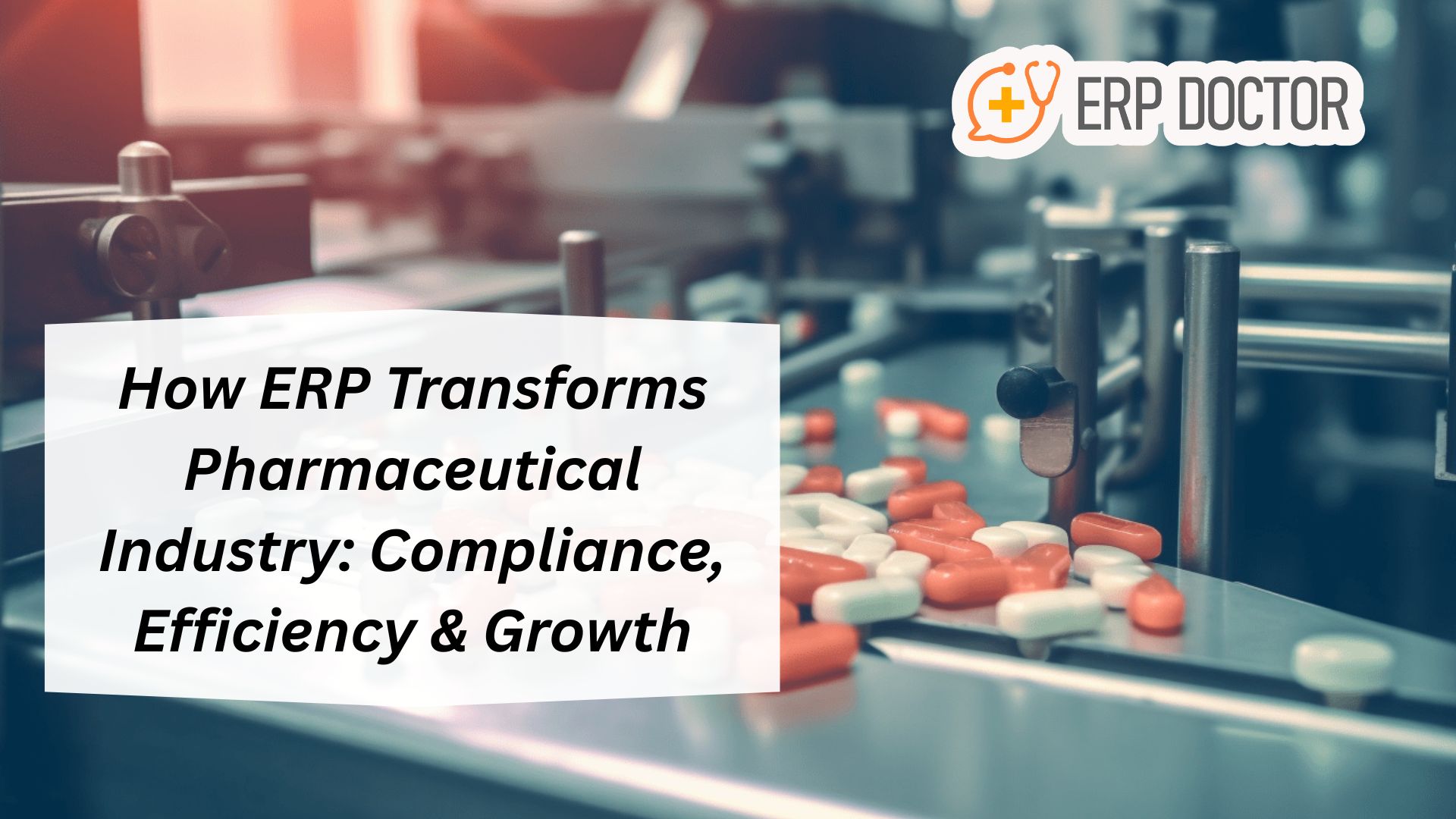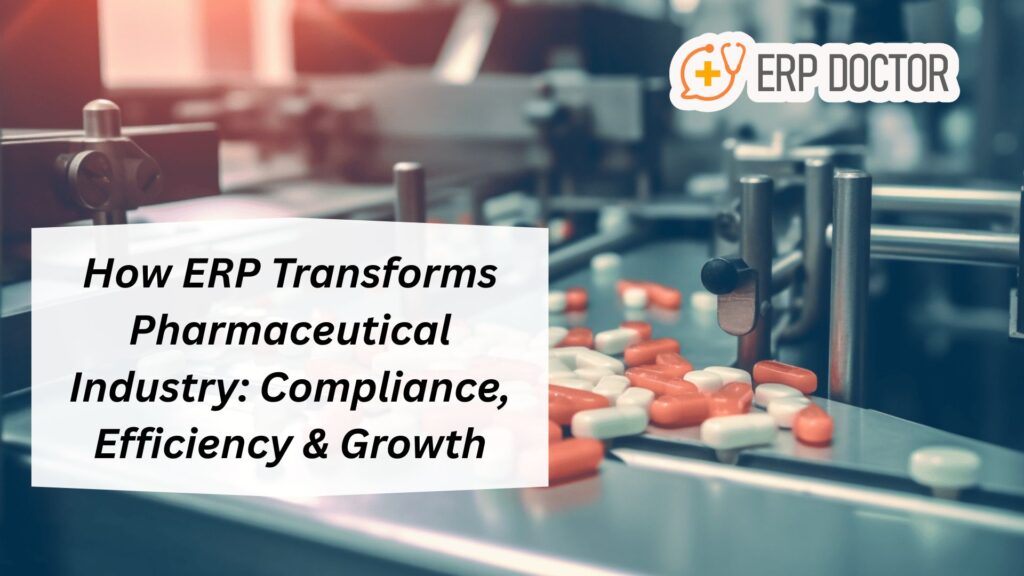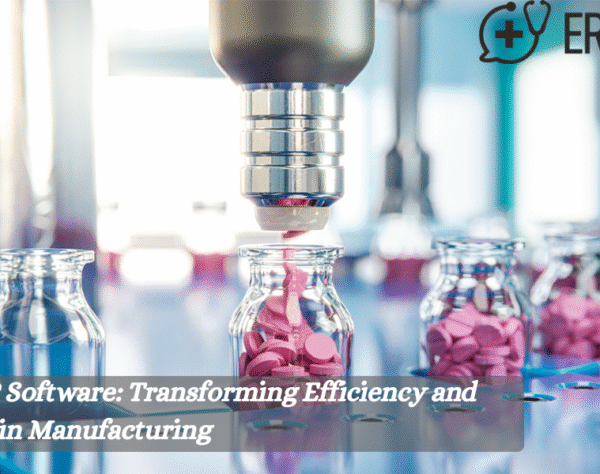
How ERP Transforms Pharmaceutical Industry: Compliance, Efficiency & Growth

Future of Pharmaceutical Industry Starts with ERP: Compliance, Control & Growth
In the fast-paced world of pharmaceuticals, companies face complex regulatory requirements, supply chain demands, and the urgent need for innovation. ERP for Pharmaceutical Industry has emerged as a powerful solution to streamline operations, maintain compliance, and support business growth. By integrating core functions into a single platform, ERP enables pharmaceutical companies to enhance productivity and meet industry standards with ease.
Why the Pharmaceutical Industry Needs ERP
The pharmaceutical sector operates under strict regulations such as FDA, GMP, and WHO guidelines. Managing production, quality control, and documentation manually is time-consuming and error-prone. Here’s where ERP for Pharmaceutical Industry makes a difference:
- Tracks compliance across all departments
- Provides real-time inventory and batch tracking
- Centralizes data for audits and inspections
- Automates quality control processes
These benefits help pharmaceutical businesses avoid penalties and maintain their licenses without hassle.
Key Features of ERP for Pharmaceutical Industry
Implementing ERP systems brings a range of features tailored to pharmaceutical operations:
1. Regulatory Compliance Management
ERP systems include built-in tools to handle GMP, FDA, and other regulatory documentation, ensuring your business is always audit-ready.
2. Quality Assurance & Control
With ERP, you can track quality checks at every production stage, from raw materials to final packaging. It reduces the risk of recalls and maintains product safety.
3. Batch & Expiry Management
Track batch numbers, production dates, and expiry details effortlessly. ERP for Pharmaceutical Industry ensures traceability and compliance with shelf-life standards.
4. Inventory & Supply Chain Optimization
An ERP system monitors stock levels in real-time, helps prevent stockouts or overstocking, and improves supplier coordination.
5. R&D and Formulation Integration
Connect R&D efforts directly to the manufacturing process. ERP helps manage formulation changes, version control, and documentation—all under one roof.
Benefits of Implementing ERP in Pharma
Implementing ERP for Pharmaceutical Industry leads to:
- Improved Productivity: Automated workflows cut down manual tasks.
- Greater Transparency: Single-source data access enables better decision-making.
- Cost Control: Accurate forecasting and optimized resources reduce overhead costs.
- Growth Enablement: Scalable systems support expansion without operational bottlenecks.
Choosing the Right ERP for Pharmaceutical Industry
Selecting the right ERP software depends on your business size, compliance needs, and operational complexity. Look for:
- Industry-specific features
- Scalability and customization
- Strong vendor support
- Data security and cloud options
Top ERP solutions like SAP, Oracle, and industry-focused platforms offer modules specifically designed for pharmaceutical needs.
Final Thoughts
The pharmaceutical landscape demands precision, speed, and strict regulatory adherence. ERP for Pharmaceutical Industry empowers companies to achieve operational excellence, stay compliant, and scale for future growth. Whether you’re a small-scale manufacturer or a global pharma enterprise, adopting ERP is no longer optional—it’s essential.
FAQs
Q1. Why is ERP important in the pharmaceutical industry?
ERP is essential for maintaining regulatory compliance, ensuring product quality, and improving operational efficiency in pharmaceutical companies.
Q2. What are the benefits of ERP for Pharmaceutical Industry?
Benefits include compliance tracking, quality control, batch management, real-time inventory updates, and cost reduction.
Q3. How does ERP help in regulatory compliance?
ERP systems store and track audit trails, batch records, SOPs, and quality standards required by agencies like FDA and GMP.
Q4. Can small pharma businesses use ERP?
Yes, cloud-based ERP systems are ideal for small and mid-sized pharmaceutical companies due to their scalability and affordability.
Q5. What modules are essential in an ERP for Pharmaceutical Industry?
Key modules include Quality Management, Inventory Control, Batch & Expiry Tracking, Compliance Reporting, Production Planning, and Sales & Distribution—each tailored to meet pharmaceutical operational and regulatory needs.
✅ Ready to enhance compliance and manage risks effectively? Explore ERP solutions for pharmaceutical industry Industry today!







